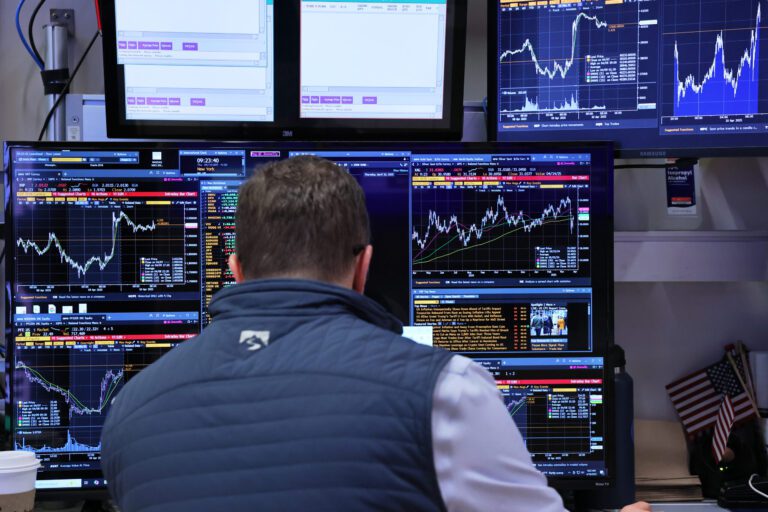Market Decline: Uncertainty Surrounds Trump Tariffs
Major market indices are experiencing significant downturns amid the ongoing uncertainty surrounding President Trump’s tariffs. The lack of clarity from the White House about potential negotiations with trading partners has left investors reeling.
Tariff Adjustments and Market Reactions
On Wednesday, President Trump indicated a potential lowering of tariffs, announcing a temporary reduction to 10% for nations that refrained from retaliatory measures against his recent import taxes. However, the situation escalated quickly as it was revealed that tariffs on imports from China could rise to 145%, stirring further anxiety in the markets.
Dow Jones Takes a Tumble
Following the announcement of higher-than-expected tariffs on China:
- The Dow Jones Industrial Average dropped nearly 1,000 points within 90 minutes.
- The market briefly rebounded mid-afternoon; however, the Dow ultimately closed down by 2.5%.
- The S&P 500 faced a 3.4% decline, while the Nasdaq reported a staggering 4.3% loss.
This drastic reaction highlights the fragility of investor confidence amidst unpredictable tariff negotiations.
Opinions from the Administration
Despite the substantial market losses, some within the administration maintained a sense of optimism.
Key Quotes:
- President Trump remarked, “In the end, it’s gonna be a beautiful thing,” acknowledging the potential costs involved.
- Secretary Bessent stated that Thursday’s drop should be seen in the context of previous gains, asserting, “Up two, down one is not a bad ratio.”
However, both officials offered few specifics regarding the ongoing negotiations with other countries.
Mixed Messages
While conservatives expressed hope following Trump’s initial tariff pause, doubts arose as the White House provided little insight into actionable plans. Lawmakers described the pause as a reflection of the “Art of the Deal,” although no affirmative agreements have emerged.
China’s Stance
The Chinese government has taken a firm position in response to U.S. tariffs. Following Trump’s announcement, China increased its import taxes on American goods by 84% and also planned to “moderately reduce” the visibility of American films in its market. This could threaten revenues for U.S. film studios, creating additional implications for the entertainment sector.
Currency and Trade Relations
- China’s retaliatory measures indicate a nuanced approach to trade negotiations, reflecting deeper economic ties and interdependencies.
- The tension in U.S.-China relations underscores the complex and often volatile nature of international trade.
Conclusions and Market Outlook
As the dust settles from recent events, investors are left trying to navigate an unclear economic landscape. Trade advisor Peter Navarro dismissed the market drops as “normal,” suggesting it was merely a retrenchment after a significant market rise the day before.
Key Takeaways for Investors:
- Monitor ongoing trade negotiations and their implications for tariffs.
- Stay informed about shifts in both U.S. and Chinese market strategies.
- Consider the volatility of stocks in light of recent tariff announcements.
For continued updates on the evolving trade landscape, visit CNBC and explore how global economic shifts may affect market dynamics.
As negotiations progress, the future of tariffs and their impact on the economy remain in flux, underscoring the need for vigilance and adaptability in investment strategies.


